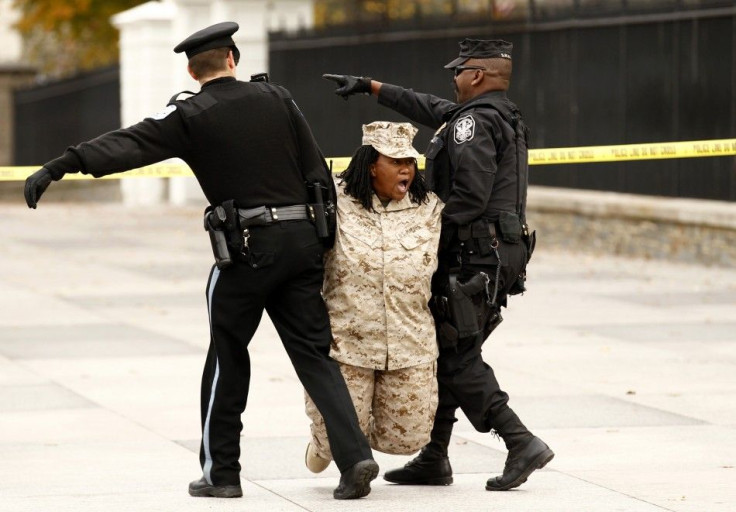Appeals Court asked to Vacate Don't Ask Judgment

Obama administration lawyers asked a federal appeals court on Thursday to vacate a judgment declaring Don't Ask, Don't Tell unconstitutional now that the ban on openly gay men and women in the military is about to be repealed.
But attorneys for opponents of the ban argued that the lower-court decision striking it down should be affirmed and left intact, preserving a legal precedent for anyone discharged under the policy who is seeking reinstatement, back pay or other recompense.
President Barack Obama in December signed a repeal of the 17-year ban into law, and announced last month that the repeal would take effect September 20 following months of preparation by the Pentagon to implement the policy change.
The administration has argued that the legal case against Don't Ask, Don't Tell is therefore moot and the landmark judgment won last year by a gay rights group, the Log Cabin Republicans, should be vacated.
This lawsuit has always been about ending 'Don't Ask, Don't Tell.' Once 'Don't Ask, Don't Tell' ends, in 19 days, this lawsuit is over, government attorney Henry Whitaker told a three-judge panel of the 9th U.S. Circuit Court of Appeals.
More than 13,000 gay men and lesbians have been expelled from the armed services for revealing their sexual orientation since the policy went into force in 1993 under then-President Bill Clinton.
Whitaker said the military already is accepting reenlistment from some of them.
Many, however, may be denied restoration of their old rank, while others who were less than honorably discharged will wish to upgrade their severance status to qualify for the G.I. Bill or veterans benefits, said attorney Dan Woods, representing the Log Cabin Republicans.
He also raised the possibility a future president or Congress might try to reinstate Don't Ask, Don't Tell, or some variation of it, as some Republican presidential candidates have vowed to do.
There's an election next year, Woods said. These are some of the reasons the case is not moot 19 days from now.
A MOOT POINT?
Comments by two of the judges, Barry Silverman and Diarmuid O'Scannlain, hinted they were at least considering a dismissal of the case as moot.
Silver wondered aloud at one point whether there was a public interest in letting the political process take its course. And when Woods mentioned next year's election, O'Scannlain snapped, Come back next year.
Three months before Congress passed the repeal law, a federal judge in California handed gay activists a major victory last year by ruling that Don't Ask, Don't Tell infringed on the constitutional free-speech and due-process rights of homosexuals in the armed forces.
U.S. District Judge Virginia Phillips put her decision into effect in October by ordering a halt to further enforcement of the ban, briefly requiring the military to welcome openly gay recruits for the first time.
But the 9th Circuit reversed her injunction in November, ruling that Don't Ask should remain in place pending a final outcome of the case.
The appeals court reinstated the injunction in early July, then partially reversed itself again 10 days later. As it currently stands, the ban on openly gay men and lesbians in uniform remains in effect, but the Pentagon is effectively barred from enforcing it.
It is now up to the 9th Circuit to decide whether to affirm or overturn Phillips' underlying decision declaring the gay ban unconstitutional. The court could otherwise throw the case out on grounds the Log Cabin Republicans lack standing or vacate Phillips' judgment as requested by the administration.
Woods said afterward that he did not expect a decision until after the repeal went into effect on September 20.
© Copyright Thomson Reuters 2024. All rights reserved.





















